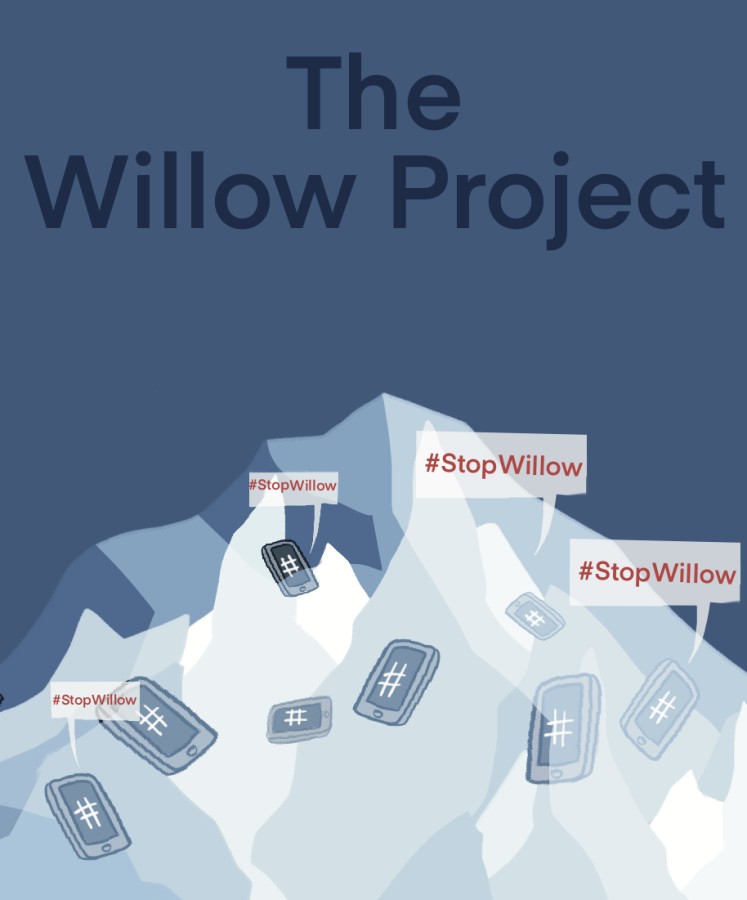#StopWillow is yet another instance of #FakeSocialActivism
It takes approximately three seconds to repost or like a 15-second clip on TikTok. And recently, the app has been flooded with videos on the Willow Project, an issue that seems to have grabbed its campaign for social justice.
The Willow Project is an oil drilling plan proposal that would be located in Alaska, harming the natural habitat of endangered species (such as polar bears, seals and migratory birds) and emitting over 200 million metric tons of carbon emissions. Essentially, the project is a huge step backwards in the struggle against climate change.
Over the last few weeks, #StopWillow and similar hashtags have reached over 600 million views on TikTok, filled with climate activists posting videos educating their viewers on the potential effects of the plan.
But as this movement gained more traction and attention, videos touting those #StopWillow hashtags morphed into something else entirely — like this TikTok with over a million likes which is literally just a velocity edit of polar bears over sad music. Even worse, this account has no information on ways to help stop the Willow Project; it has no links to petitions or comments on actions the viewers can take to support the movement against the project.
More and more, social justice movements that are largely spread on social media have trivialized important matters into simple trends, exploiting them to gain likes or followers. It’s not just the creators of random edits that perpetuate this cycle — it’s the viewers too. It’s the people who claim to believe in social justice, but do little more than watch and repost sad edits on TikTok. Unfortunately, that’s not enough. Real change doesn’t come from gaining one million views on a polar bear edit. Real change doesn’t come from simply commenting “this is so sad” on a TikTok. Real change doesn’t come from universal knowledge about how bad a proposed project may be. It comes from educating others on active ways that contribute to the movement, like protests, petitions and taking action yourself.
Furthermore, the Willow Project has been in motion since the former President Donald Trump approved the plan in 2020. Unless President Joe Biden wanted to face possible legal repercussions that could cost the government up to 8 billion dollars, he had to let the proposal pass. Biden also greatly reduced the scope of the Willow Project, limiting oil drilling in 16 million acres of the proposed area and decreasing its carbon footprint by a third.
So, those TikToks slamming Biden for approving the Willow Project without researching the reasons behind why it had to be passed and how late their activism was simply spread misinformation to their audiences.
The Willow Project isn’t just black-and-white: it isn’t big bad Biden killing off poor polar bears. Educate yourself about the nuances of the issue before jumping on the hate train.
#StopWillow was too late. The Willow Project was approved by the Biden administration Monday, March 13.
Where was this activism when Trump first approved the plan? It was only when #StopWillow became a trend mere weeks before it was scheduled to be approved that the public actually became concerned with the proposal.
Maybe if we treated social justice movements in media as an actual place to spread knowledge on actions to take and not as a trend to piggy-back likes off of, we would’ve brought heavy criticism on the Willow Project three years ago when the approval wasn’t so imminent and actually stopped the proposal.
Take the failure we suffered with Willow Project as a lesson for future social justice endeavors: next time you come upon yet another movement that demands your repost or your like, remember to also educate yourself on real ways to make a difference — not just double-tapping the screen.
You can support the coalition of environmental groups suing the Biden administration over the Willow Project by donating on their website and email federal decision-makers on the importance of reducing climate change at the forefront of future policies.





